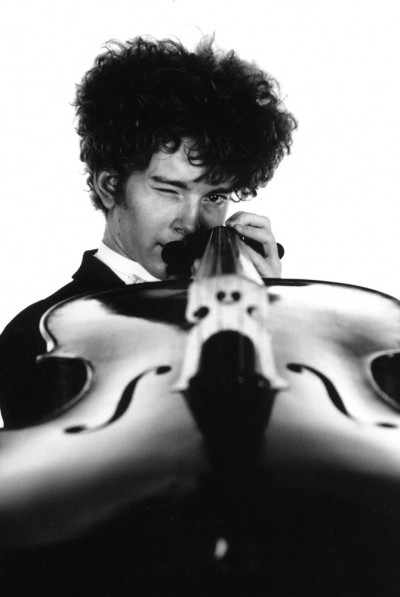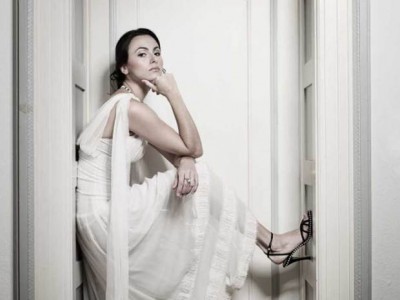
Cellist Roman to open 33rd season of Sunday Afternoons concerts
This weekend marks the beginning of the 33rd season of the Sunday Afternoons of Music series, which will present seven regular concerts and six concerts for children at the University of Miami’s Gusman Hall.
For all of the growth of South Florida’s classical music scene, and the impressive number of first-rate musicians that come to the area during the season, many of the artistic presentations here are handled by organizations like Pinecrest-based Sunday Musicals, which began with a string quartet concert in a Kendall temple in 1981. This is real grassroots arts work, and the cultural life of the region would be considerably poorer without organizations like it.
The first concert in the Sunday Afternoons series features the young Oklahoma-born cellist Joshua Roman, who in June appeared on the first Miami Chamber Music Society-run program of the Mainly Mozart Festival, itself another example of grass-roots classical concert presentations. Roman, just 29, is part of the current wave of young cellists who have added youthful excitement to concert programs, a group that includes musicians such as Alisa Weilerstein, Matt Haimovitz and Sol Gabetta.
For his program, Roman has chosen four works: two sonatas and two suites. The two sonatas, both in C major, include the the Sonata No. 4 (Op. 102, No. 1) of Beethoven and the lone Cello Sonata (Op. 119) of Prokofiev. The Beethoven, like a lot of the later work of this composer, is in an unusual, innovative form, beginning with a two-part first movement in which a tender Andante is followed by a stormy, minor-key martial Allegro vivace. It’s a difficult sonata to play and perhaps even harder to bring off interpretively.
Prokofiev did not write a great deal of chamber music, and his Cello Sonata is not of his best-known pieces. But it is a splendid work, written at a time (1949) of ill health and limited success for Prokofiev, who nevertheless was finding new inspiration in working with a rising young musician named Mstislav Rostropovich; the two would collaborate on a revision of Prokofiev’s Cello Concerto the next year. Although Prokofiev captured a lot of attention for his daring experimentalism in his early career, he was actually a really fine melodist, and this piece, while surely restricted in scope by the oppressive regime he lived under in the Soviet Union, shows this aspect of his gift remained undiminished. It’s a piece that should be heard more often.
Another work by a Russian composer, Igor Stravinsky, opens the concert, though Stravinsky’s self-exile outside Russia, first as a Frenchman and then an American, tends to give his oeuvre a much more cosmopolitan flavor. The Suite Italienne, a five-part work, is an arrangement for cello and piano of music from his 1920 ballet Pulcinella, which itself is a recomposition of works from the Italian Baroque, most of them by little-known composers (though they were originally attributed, erroneously, to Pergolesi).
Stravinsky made the arrangement in 1932 in collaboration with the great Russian cellist Gregor Piatigorsky, and the following did it for violin and piano, touring the U.S. with violinist Samuel Dushkin. It was a landmark score for Stravinsky, in that it marked the start of his neoclassical phase, a sharp departure from the radical explosiveness of The Rite of Spring. Stravinsky did marvelous things with the source music, and it works as beautifully as a cello-and-piano work as it does a ballet score.
Roman also will play the Five Pieces in Folk Style (Op. 102), by Robert Schumann, also a late work (1849), and one too often overlooked. The five pieces are lovely and charming, encompassing a variety of moods and playing to Schumann’s strengths as a composer of strong melodies who can get a lot across in a small structural space.
Sunday’s concert begins at 4 p.m. at Gusman Hall. The pianist for the recital is Cory Smythe, a composer and contemporary music specialist whose work has included recitals with the violinist Hilary Hahn. This recital promises to be a nourishing, memorable way to start off the 2013-14 season of Miami classical concerts.
Isabel Leonard. Photo by Deniz Saylan
Other Sunday Afternoon programs feature the Gay Men’s Chorus of South Florida (Dec. 15), in a program of Christmas music; and the Amernet String Quartet (Jan. 12), the very fine Miami-based quartet, who will be joined by the legendary Guarneri Quartet violist Michael Tree for string quintets by Mozart and Dvorak, and who will play the Second String Quartet of Janacek.
On Jan. 26, the New Trio, a rising threesome of pianist Julio Elizalde, violinist Andrew Wan and cellist Patrick Jee, performs an all-Russian program of trios by Rachmaninov, Shostakovich and Tchaikovsky; Elizalde returns Feb. 16 as accompanist for the young Taiwan-born Australian violinist Ray Chen, winner of the Queen Elisabeth Competition in 2009; the program has not been chosen (a hint may be available in the recitals he and Elizalde are giving currently, which feature pieces by Bach, Mozart, Prokofiev and Pablo de Sarasate).
The great American pianist Richard Goode returns to South Florida on March 16 for a Sunday Afternoons recital, and while his program has not been announced either, his current series of recitals includes sonatas by Haydn, Mozart and Beethoven, the kind of core German repertory in which Goode is peerless.
The series closes May 18 with the South Florida debut of the American mezzo-soprano Isabel Leonard, who has made a sensational name for herself with performances at Britain’s Glyndebourne Festival and at the Metropolitan Opera in New York, where she sang Miranda in Thomas Adès’ opera The Tempest last season, and will be singing Mozart’s Cosi fan Tutte for that company later this month. Her recital selections, also unannounced as of yet, will be accompanied by the Romanian pianist Vlad Iftinca, a staff pianist at the Met. Their recital earlier this year at Zankel Hall featured Spanish and American art songs.
Tickets for the Sunday Afternoons series are $35; more information can be had by visiting sundaymusicals.org or calling 305-271-7150.
Recent Content
-
Artsarticle ·
-
Artsarticle ·
-
Artsarticle ·

